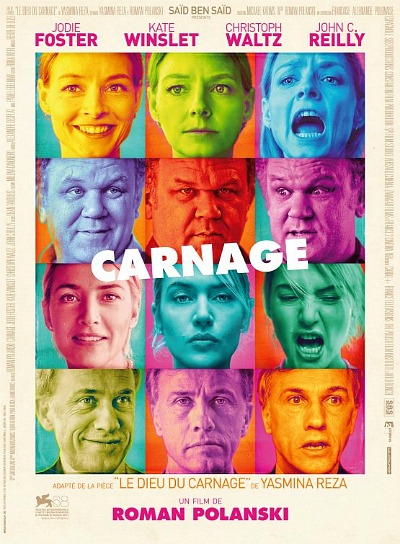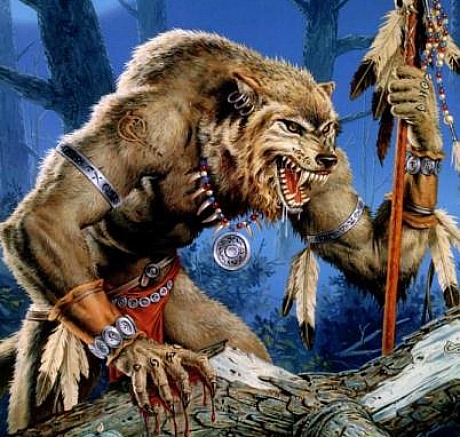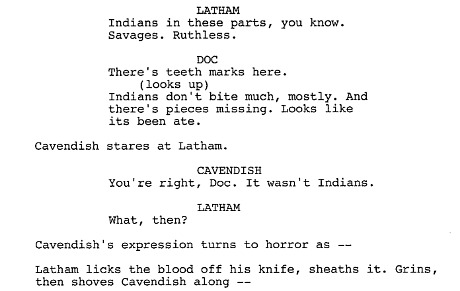Before this scene in Paul Schrader‘s American Gigolo (’80), had any film from any country ever shown a guy getting high over the clothes he’d be wearing that day, and experiencing the joy of picking exactly the right shirt, tie and, jacket and shoe combos? Narcissim and shallowness, of course, but this kind of sensual enjoyment is rare in films. It’s appropriate that Richard Gere speaks Italian in this clip since the carefully chosen clothes were mainly from Milan.
Day: August 13, 2011
The Return
Whatever happened to IGN’s Stax Flixburg? Or rather, what happened to his stories? I only know that I used to link to his IGN reports from time time, but that hasn’t happened since July ’07. I just noticed him today on Twitter, etc. It’s funny how you can just sort of slip away and disappear without anyone noticing. That’ll happen to me some day.
Stand Back
I quite like this moody, Antonioni-esque, Guy Peelaert-styled image from Simon Curtis‘ My Week With Marilyn (Weinstein Co., 11.4). But I’m still waiting for a trailer or even an image that will offer a slight taste of Kenneth Branagh‘s performance as Laurence Olivier, which I’ve been told is the film’s highlight.

Couples, Children, Vomit, Truth
I ran a piece on 4.14.11 about the decision to remove the words “God of” from Roman Polanski‘s adaptation of Yasmina Reza‘s God of Carnage, and to therefore call it Carnage (Sony Classics, 11.18). I was told by a publicist that day that the decision “was made by the producer Said Ben Said and Polanski.” Most people felt this was an odd call but whatever. The movie’s the thing, right?

My suspicion is that Carnage was adopted because of the U.S market, and particularly a fear that hinterland yahoos might react negatively to the word “God” not being used in a strictly Christian context. Even if this isn’t true the U.S. is still the most religiously primitive, culturally backward, finger-up-its-ass country in the Western hemisphere, hands down.
The French poster for the film has been released, and while the French acknowledge the original title on the the bottom of the poster, they’re sticking to Carnage.
Not In This Century
Even in 1984’s Footloose the idea of dancing being banned in a small Midwestern town was ridiculous. Yes, the script came from an actual dancing ban that had been enforced in the town of Elmore City, Oklahoma, and was finally revoked in 1980. But the banning of dancing — not the jitterbug or square-dancing but suggestive pantomining of sexual congress, which is what modern dancing more or less is — is like some ghostly remnant of America’s buried puritan past.
The idea, in short, comes from those small-town preachers and community leaders who were afraid of race music and be-bop Elvis Presley and Little Richard music in the early to mid 1950s.
If it was ludicrous in 1984, some 27 years ago, it’s much, much dopier today. There is no more rural America except in the low-income country backwaters. Everything has been corporatized and Walmart-ized. The internet has opened everything up to every kid in the country. Outside of Mormon, Amish and Hassidic culture there are no more middle-aged farts who look like Dennis Quaid telling high school kids not to grind their hips on a dance floor. The early to mid 1950s, when fear of rock ‘n’ roll was at its height, was 55 to 60 years ago. And that’s over. The small-town elders who inveighed against Presley and who burned Beatles records in 1966 when John Lennon said “we’re more popular than Jesus” are dead and gone, or too old to matter.
Which is why the new Footloose is going to be awful, and why it’s going to take a lot of pain pills to get through Quaid’s performance as John Lithgow. I know, I know…the under-25 target audience won’t care because they’ll just be into the idea of grooving to a new Dirty Dancing before the actual remake comes along.
"Looks Like A Clown"
On top of everything else, Gov. Rick Perry‘s Supercuts hair style is really quite awful. His hairline is too close to his eyebrows and seems to crowd his facial features. And those fat yellow ties and those awful elephant-collar businessman’s shirts he wears with his suits. There’s just something oozy and odious about Perry. He makes you want to leave the room.
Producers Heart Help
Last night an industry-connected HE correspondent wrote to say he’d “just returned from a PGA screening of The Help at the WGA theatre,” and that his wife “was in tears” and that the overall response was quite emotional. “The crowd name-checked the credits, clapping five different times,” he wrote. “Crazy applause. An entertainment attorney was sitting next to me, a guy in his mid ’50s, and he wasn’t just saying at the end ‘yeah, pretty good, whatever’ but ‘man…amazing!’
“Chris Columbus and Michael Barnathan and other producers did a q & a. They seemed very confident and self-satisfied, but in a good way. The crowd really loved the movie.
“The decision to do a food product tie-in seems certain to backfire and is already stirring the racial controversy pot. But the audience that has reward the book is going to go see this in droves. It feels like this movie is going to get talked about and make a lot of money, and land some awards.”
The expectation is that The Help will end up with something like $32 million by Sunday night, and may go on to earn as much as $100 million…who knows?
Dances With Werewolves
The reason The Lone Ranger‘s budget was so astronomically high that Disney execs decided to shut it down was because it’s an effects-heavy CG thing due to being a kind of an Indian-spirituality werewolf movie — a.k.a., The Lone Ranger Meets the Wolfman. Yes, I’m serious. A 3.29.09 draft of Ted Elliott and Terry Rossio‘s script makes it clear it was going to be at least partly about some kind of Native American wolfbeast tearing victims apart and leaving a bloody mess.

Don’t take my word for it — look at the below photo capture of page 61 of Elliott and Rossio’s draft.
“It was always going to be a big Bruckheimer CG movie with traditional Bruckheimer elements with an eye toward being a tentpole, totally Pirates-style,” says a gadfly screenwriter who always hears stuff and has been following the project through postings on writersactionbss.com — a private writers’ website that Elliott has posted on.
“It was never going to be a semi-traditional western…it was never going to be Zorro,” he says.
“It was going to be a Tonto show mainly. Tonto as the top dog and more dominant than the Lone Ranger. Tonto and the Indian spirits like Obi Wan Kenobi and the force. The driving engine was going to be Native American occult aspects worked in with werewolves and special effects. But flavored with doses of Native American spirituality in a serious way.
“But then Cowboys & Aliens came along and tanked and Disney got cold tenderfeet, spooked by the idea of a pricey mashup. If Cowboys & Aliens had made $200 million, this wouldn’t be happening. A Bruckheimer-style western in the wake of Cowboys & Aliens is nothing anyone is feeling secure about at this stage. Trust me, the writers of tentpole garbage are all scared now.”
The success of Rise of the Planets of the Apes with its relatively low cost (at least compared to The Lone Ranger) and no big stars has also colored the mentality out there, I’m hearing. Who needs big payday players? Studios do, obviously, but they’d love to get rid of them. Because they want bigger profit margins. Simple.

The most interesting angle for me is the story about Depp taking the Native American spiritual stuff seriously, and how he didn’t want to camp it up like Captain Jack. He wants his role to honor Native American culture and its spiritual foundations.
“Depp’s interest in playing Tonto is about fulfilling his Marlon Brando legacy,” the director-writer believes. “Deep is partly Native American himself and he was partly mentored by Brando, who was a big Indians’ rights advocate. So he didn’t want to do any kind of jaunty performance that plays it light and spoofy with the Native American thing. No Captain Jack crap this time around.”
Justin Haythe was the latest Lone Ranger screenwriter. His Revolutonary Road work suggests be was brought in to class things up a bit and perhaps raise the solemnity levels.
But the film was always going to have a theme that could be summed up as “Tonto knows best.”
Almost three years ago on writeractionbbs.com, Ted Elliott was asked who will be playing the Lone Ranger, and without posting his exact quote he said that while the Lone Ranger character is the lead, any actor might be concerned about Tonto’s character overshadowing the Ranger’s, given the casting.
Which is why the up-and-coming but new-to-the-game Armie Hammer was a perfect fit as The Lone Ranger.

It wouldn’t be out of character for nervous-nelly Disney executives, prior to the shutdown, to be concerned about Quentin Tarantino‘s forthcoming Django Unchained, a totally flip, revisionist and goofy-ass downmarket western with Kevin Costner as a villain, and on the other hand you have Depp as Tonto playing it more or less straight….how would that shake out as they opened more or less in the same time period?
Romney is Finished
Two days ago Republican presidential contender Mitt Romney shot himself in the foot and the head with his “corporations are people, my friend” comment. I really think he’s killed his candicacy with that remark. Because one of the key seminal concepts of the aughts, articulated by Joel Bakan‘s “The Corporation: The Pathological Pursuit of Profit and Power” (’05) and the 2004 documentary of the same name and recognized by every person on the planet with an IQ over 50, is that corporations are not people — they’re sociopaths.
Bakan’s book (which oddly came out after the doc) is basically about putting corporate behavior under psychological examination. What he found is that corporations behave like your boilerplate clinical psychopath or sociopath.
The sociopathic personality is about antisocial tendencies, “me, me, me and mine,” manipulation, inflated grandiose visions about destiny, “who, me?”, a lack of empathy, a refusal to accept responsibility for antisocial actions, and an inability to feel remorse. This is precisely the attitude and modus operandi of your typical corporation.
Corporations are solely about profit. As one guy said in an Amazon review, “Every action taken [by a corporation], no matter how altruistic it looks, has to ultimately be a search for profits. Otherwise, the corporation is subject to litigation by the shareholders. The corporation is deliberately programmed and legally compelled to externalize (dump) costs (pollution, for example) without regard for the harm it may cause. Every cost it can unload onto the general public is a benefit to stockholders — a direct route to profit.
“Many major corporations habitually engage in criminal behavior with records worse than even the most prolific human criminals. GE collected 42 heavy fines over 11 years, which is akin to a hardened repeat criminal receiving occasional hand slaps while on perpetual parole. Corporations don’t mind chalking these fines up as a cost of doing business, and then delegating a committee to figure out how to cover their tracks better in the future.
“Within the past 20 years corporations have really gotten in bed with government in the United States. Billions in PAC money is spent every year for lobbying and political contributions. Grateful politicians find reasons to vote for causes supported by their benefactors. How can virtually unfunded (by comparison) watchdog groups compete with this machine aimed toward sugar-coating their industries and de-regulation? ”
